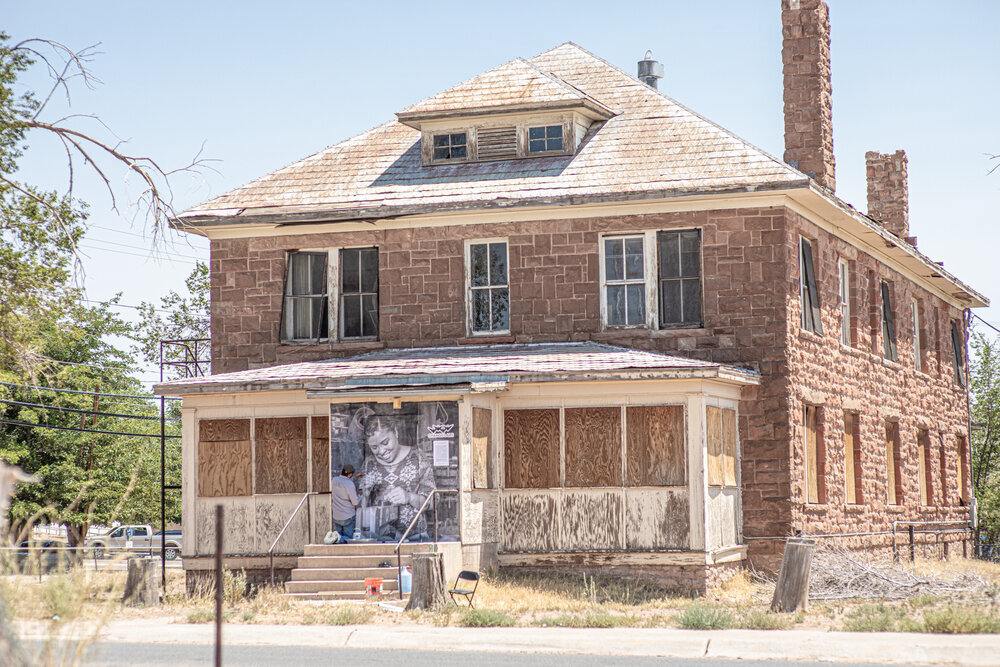New Art Installation Advocates for Infrastructure for Local Navajo Businesses
Photograph by Raymond Chee
Dilapidated buildings litter the North end of Main Street in Tuba City, Arizona on the Navajo Nation. The vacant buildings are adjacent to the Quality Inn, AutoZone, and the Tuba City Regional Healthcare, occupying the best real estate in town. Owned and managed by the Bureau of Indian Affairs (BIA), the buildings are nearly untouchable by local residents despite the dire shortage of retail infrastructure in the community.
Although the Navajo Nation possesses the largest tribal landmass in the United States—roughly 27,000 square miles—most of that land is off-limits to Navajo people and businesses. More than 90 percent of reservation land belongs to the U.S. government, held in trust by the BIA. Less than 1 percent is “fee land,” land owned by individuals who can freely sell it or build on it. Getting permission to access land or physical space to do business can take months (http://www.nativestartup.org/ecosystembuilding) or even years on the Navajo Nation. As a result, most Navajo business owners limit their dreams to roadside stands, flea-market stalls, or working from remote homes.
Photographs by Raymond Chee
We partnered with Hundred Storms Creative, a Navajo-owned creative agency in Tuba City, to bring visibility to this injustice. In late July they put up two biodegradable installations on one of the largest BIA buildings on Main Street and the vacant Van’s Trading Post on Highway 160. Both installations feature black and white photography of Navajo and Hopi entrepreneurs working from home.
“The invisibility of Native American owned businesses who have to operate from their home has a detrimental impact on our economy,” says Heather Fleming (Diné/Navajo), Executive Director at Change Labs. According to published research (http://navajobusiness.com/pdf/Ads/NavEconDataBulletin02Final_050412.pdf), the Navajo Nation loses an estimated $216 million annually in sales tax revenue to off-reservation spending. “The invisibility of Native businesses also means that the 600,000+ tourists traveling across the reservation eat their meals at chain establishments, purchase Native American jewelry in border town galleries, and pay for tours led by non-Native people,” adds Fleming.
Tommy Greyeyes (Diné/Navajo), the founder of Hundred Storms Creative, only recently started his business on the Navajo Nation. “Supporting local Native American owned businesses and using our dollars to help them grow in our community will make the biggest difference in the generations to come,” says Greyeyes.
Change Labs and Hundred Storms Creative are using the installation to garner support for a petition requesting congressional funds to clean up the asbestos from the BIA buildings on Main Street and repurpose them for local business owners.
Photograph by Raymond Chee




